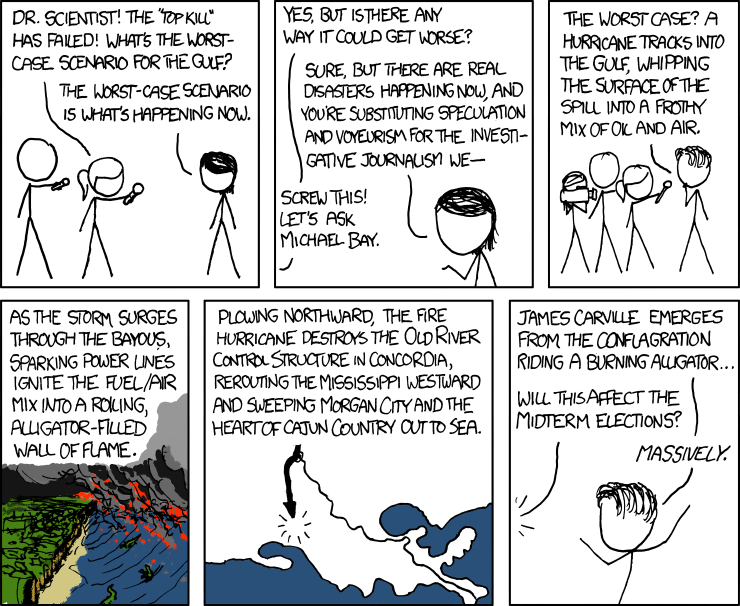http://www.realclear...fect_98505.html
June 9, 2010
No Thomas Frank, Capitalism Is Perfect
By Wendy Milling
To be perfect means to meet a given standard flawlessly. The standard of perfection for a politico-economic system is that it be in accordance with the requirements of man's nature. Man is an integrated being of matter and consciousness who exists by the use of his rational faculty. In order to continue existing, he must implement the products of his reasoning in the material realm, organizing things to achieve a material outcome which contributes to his survival. If force is used against this process at any step, that which is needed for his survival cannot come into being.
A concept is therefore needed to denote man's morally and legally sanctioned freedom of action with regard to his use of materials-the concept of property rights. Since politics concerns the nature of government, and the essence of government is force, the full politico-economic application of property rights is a system in which government protects an individual's property rights from violation by others, but does not itself violate them. Capitalism is the politico-economic system of private property rights. It connotes a system whereby property rights (and hence, the other rights) are respected objectively and completely.
Capitalism is perfect.
Assaults on capitalism are rooted in a crybaby metaphysics, and they rely on obfuscations, equivocations, and an attitude of militant evasion. One trick is to make inappropriate demands of capitalism, then stomp and pout and denounce capitalism when those demands are not met.
One of the irrational demands made on capitalism is to provide infinite abundance, usually in some particular object of the demander's whim. The world has finite resources, and man has limited time and is not omniscient. There cannot be an infinite abundance of anything. This is not a flaw in any proposed politico-economic system (especially capitalism, which provides the greatest abundance of all of them), and in fact has nothing to do with systems qua system at all. It is a feature of reality.
A corollary demand is the erasure of all poverty, suffering, and, by logical extension, inequality among man. Appealing to an irrational sense of guilt, this trick ascribes to political systems an implicit, incompatible mission: Make it so that absolutely everyone is healthy, educated, happy, and has all the resources he wants (or some do-gooder wants for him). It then pronounces capitalism as flawed when such conditions do not materialize. Some degree of economic malady exists and will continue to exist under any system, including capitalism. It is not the responsibility of capitalism to eliminate, and it is not a feature of capitalism, but of a special facet of reality: Man's free will.
Individuals must perform mental and physical work in order to attain material values, but this requires an act of free will. The existence of free will means that some people will choose to have a different value system, and some will choose not to have values at all. In a pure capitalist system, the opportunity to achieve whatever prosperity level desired is available to everyone.
Some people will completely reject it. They will choose to drug themselves into oblivion, live on the streets, prostitute, panhandle, or otherwise live degenerately. Others will choose to live like pigs, expecting great social rewards for minimal productive work or no work at all. They will choose to do these things even though they could choose to live virtuous lives and become fabulously wealthy, and some will reject it so totally, they will allow themselves to die before they exert themselves for any sustained period of time. For whatever reason, they simply do not want to put forth the effort needed to attain the level of material security the do-gooders think they should have.
It is not the proper purpose or function of a politico-economic system to override the free will of man, and any attempt to do so is immoral. It would be an attempt to violate the rights of the virtuous for the sake of those who reject virtue, because in reality, the only way to start equalizing results for people who have chosen to reject effort is to rob from those who have not. To insist that people who demonstrate no commitment to achieving material values, value the materials anyway-and then blame capitalism for their not having them-is to border on the psychotic.
Do not offer that old tripe about innocent children being hurt; there are already laws against child abuse, neglect, and endangerment. Having to live in relative poverty is not a violation of their rights (unless their parents' impoverishment was caused by stock market crashes, unemployment, or other conditions brought on by government, but statists are singularly unconcerned with these kinds of victims).
When the enemies of capitalism are not blaming it for sins of omission, they are blaming it for sins of commission, hanging some ugly idea on capitalism like a rotten barnacle and hoping that observers cannot tell from whence the rot came. The Wall Street Journal's Thomas Frank challenges the advocates of laissez-faire to defend their philosophy in light of the BP oil spill. "But what say the tea partiers today? Who will step forward now and demand that the ‘energy market' be rescued from regulatory bondage?" he asks with a sneer and an ideological death wish.
Note the subtle trick of his op-ed: He attempts to smuggle in an equivocation between the concept of laissez-faire and the concept of industry. The oil spill was an industrial accident. It is unrelated to laissez-faire or any type of political system. Accidents occur in all political systems, and although they are lamentable, they are not any sort of threat to civilization, and they are irrelevant to the choice of political systems. (And if they were relevant, then it is clear which system would be the winner. Observe that the more capitalist the country, the cleaner and safer it is, and the more statist the country, the worse its physical and environmental conditions. The Soviet Union left itself and its satellites toxic wastelands).
Mr. Frank seems to count on the reader to see that BP is a privately owned company and, in the confusion, to stick a mental post-it note labeled "disastrous oil spill" on the concept of laissez-faire. If the BP oil spill is to be a cause célèbre for statists, then let us inquire into the spill and the role of the state. After all, the force of his challenge seems to rely on the notion that this spill is particularly devastating and seemingly intractable, beyond the ability of the private sector to handle.
If true, that should be your first clue that that mental post-it note belongs on the concept statism.
Observe that the government, beholden to an insane environmentalist ideology that views nature as an intrinsic value and superior to human beings, forbade oil companies to drill nearer to the coast line where there were shallow waters. In the shallow areas, an oil leak could be directly accessed. Instead, companies were only allowed to drill in areas too deep for current technology to address.
The liability risk in deep waters was too great for the oil companies to accept. This is an example of the inherent safety features in a free market. However, because we need the oil for our economy, politicians had to entice companies to drill there by capping liability limits on accidents, legally shielding them from the consequences of failure they would bear under a capitalist system. It is government that removes the safety controls and engenders unacceptably risky situations.
There is no regulation that can override the reality of a fundamentally flawed set-up like this, which is why the statists do not offer to explain why such regulations were not already in place in one of the most heavily regulated sectors of the economy.
It is also an open question what the actual economic damage will be, what it would be were the federal government not interfering with local authorities' attempts to mitigate the spill, and what adaptations the private sector will make to counter the new adversities.
Thus, if it were not for government interference, there might still have been an accident at some point, but there would have been no "disaster." Statism was the problem, and laissez-faire would have prevented this situation.
The conclusion is obvious. The mixed economy cannot continue. The truth is that all government interferences hurt some in the private sector, and there is a limit to the amount and kind of statist policies that the market can absorb. If America is to survive, we must have a mass repeal of environmental legislation and regulations. We are going to have to get serious about laissez-faire, starting with getting the government out of the way of the energy industry.
Wendy Milling is a contributor to RealClearMarkets


















































